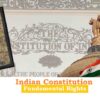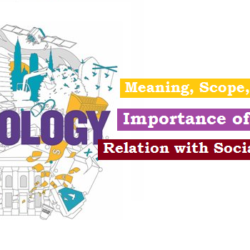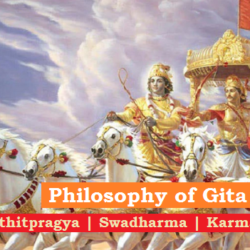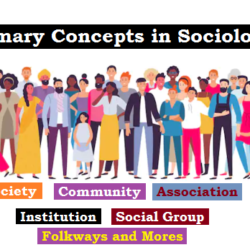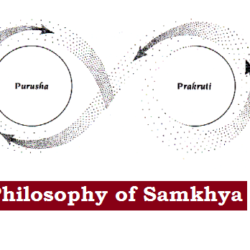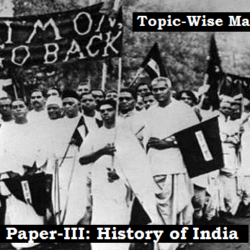
The Constitution of India, being federal in structure, in Part XI divides powers- legislative, administrative, financial- between the Centre and the States. (Cooperative Federalism)
The Centre- State relations can be divided under three heads:
1. Legislative Relations
a. Distribution in territorial extent
b. Distribution of legislative subjects
c. Parliament on State subjects
d. Centre over State Legislation
a. Distribution in territorial extent:
- Parliament’s territorial covers whole country and State’s limited to the State only and it’s laws are not applicable outside the State.
- The Parliament can alone make extra-territorial legislation for Indian citizens outside the country.
b. Distribution of legislative subjects:
- The Constitution provides for a three- fold distribution of legislative subjects between the Centre and the States.
- The Union List has subjects of national importance and requires uniformity of legislation nationwide. The State List has subjects of local importance, and permits the diversity. The matters on which uniformity is desirable but not essential are enumerated in the Concurrent List.
- The Parliament has exclusive control over the subjects of the Union List (100 subjects), whereas the State Legislature has complete control over the subjects of the State List (61 subjects).
- Both can make laws on the subjects of Concurrent List (52 subjects like education, forests, wild life, electricity, family planning, criminal law and procedure). However, in case of a conflict, Central law prevails over a State Law.
- The power to make laws on residual subjects is vested in the Parliament.
c. Parliament on State subjects:
- When extraordinary situation arises, the Centre- State relation gets modified to empower the Parliament to make laws on a subject of State List.
- Circumstances of extraordinary situations are:
1. When Rajya Sabha passes a resolution (with 2/3 majority)
It remains in force for 1 year and can be extended to any number of times
2.During national emergency
3.During President’s rule
4.On request from States
Two or more State passes a resolution, it can be repealed or amended by the Parliament only
5. Implementation of International Agreements
To fulfill international obligation and commitments
d. Centre over State Legislation
- The Governor can reserve certain types of bills for the consideration of the President (absolute veto with the President)
- Certain bills can be introduced in the State Legislature only after previous sanction from the President (e.g.: imposing restriction on freedom of trade and commerce)
- The President can direct the States to reserve money bills and other financial bills for his consideration during Financial Emergency.
2. Administrative Relations
a. Distribution of executive powers
b. Obligation of States with regard to Centre
c. Center’s direction to States
d. Mutual delegation
e. Cooperation between Center and States
f. During emergency
g. Center’s control on States
a. Distribution of executive powers
- On the lines of Legislative Powers extending to subject matters of Union, State List.
- In case of Concurrent List subjects, the executive power rests with the State (though enacted by the Parliament, is to be executed by the State normally)
b. Obligation of States with regard to Central power
The executive power of the State is to be exercised in such a way to ensure compliance and not to impede with the Central laws (Art 365 articulates President’s Rule if a State fails to comply and thereby cannot be carried on in accordance with the Constitution)
c. Center’s direction to States
The Center is empowered to give directions to States in case of maintaining infrastructure of national importance (railways, defence), linguistic minority, schedule tribe, etc.
d. Mutual delegation of functions
Any executive function of the Center (with the consent of the President, State concerned) and the State (with the consent of the Governor and the Center) can be mutually entrusted to each other.
e. Cooperation between Center and States
- To secure cooperation and coordination Parliament can provide for adjudication of any dispute between States (Inter- River water dispute, etc)
- President can establish Inter- State Council (Art 263) for better coordination.
- There are some extra- constitutional institutions too to promote cooperation and coordination like NITI Ayog, National Integration Council, and many conferences for the wide ranging consultations between the Center and States.
- Constitution also provides for All India Services to work for the States, maintaining high standard of administration and cooperation.
f. During emergency
- Executive directions to State on any matter of State Subject during National Emergency
- During President’s Rule, the President can assume the executive powers vested with the Govt
- During Financial Emergency, the Parliament and the President can give directions to States in case of financial matters.
g. Center’s control on States
- Appointment of the Governor by the President, who holds office during his pleasure
- The State Election Commissioner, though appointed by the Governor, can be removed only by the President.
- It is the duty of the Center to protect the State in case of any external aggression or internal disturbances and to ensure the Govt is carried out in accordance with the Constitution (Art 355)
3. Financial Relations
- Indian Constitution (Art 268- Art 293) has made elaborate provisions for sharing financial resources.
- Constitution divides the taxing power between Center and the States through Union, States and Concurrent Lists.
- For example, it is the State Legislature which is competent to levy a tax on agricultural income, while Parliament has the power to levy income-tax on all incomes other than agricultural income.
- Other items on State list: Excise duties on alcohol and narcotics, Sales tax (other than newspaper)
Tax distribution:
The proceeds of the taxes in the State List are entirely retained by the State. However, proceeds from Union List are also allotted to the States partially.
There are five categories of Union Taxes which are assigned to the States:
- Duties levied by the Union but collected and appropriated by the States (Art 268): Stamps duties and duties of excise on medicinal and toilet preparation containing alcohol and narcotics
- Service Tax levied by center but
collected and appropriated by both (Art 268A):
Service tax on services, collection and appropriation by the Parliament - Taxes levied and collected by the
Union and assigned to the States (Art 269):
Taxes on goods in inter-state trade and passengers by railways, sea or air, Duties in respect to succession to property (other than agricultural land), Estate duty in respect to property (other than agricultural land), - Taxes levied and collected by the
Union and distributed between the Union and the States (Art 270):
Income Tax not including Corporation Tax, (on the recommendation of Finance Commission) - Surcharge levied and collected for
the center (Art 271):
Parliament can levy surcharge on taxes and duties for the center exclusively
Constitutional safeguards:
Prior
recommendation of President is required to Bills affecting taxation in which
States are interested (Art 274)
Grant-in-aid:
Constitution also provides for grant-in-aid to the states from central resources. Three types of grants:
- Statutory Grants (Art 275): Financial assistance to states in need and not to every state
Also for the welfare of Schedule Tribes and Scheduled Areas (Finance Commission Recommendation) - Discretionary Grant (Art 282): Any grants for public purpose
- Other grants: Grants in lieu of export duty on jute and jute products to some States (Art 273)
Loans:
- Apart from these, Constitution also empowers the State with borrowing power, within India (Art 293) upon the security of the Consolidated Fund of State.
- Loans by the Center to the States are to be charged from the Consolidated Fund of India.
- A State cannot raise any loan without the consent of the Center if any loan or a part is still out- standing to the Center.
Finance Commission (Art 280):
To be constituted by the President every fifth year or earlier to recommend him on:
- The distribution taxes between Center and the States
- The principles to govern grants-in-aid out of the Consolidated Fund
- The measures needed to augment the Consolidated Fund of a State to supplement the resources of the Panchayats and municipalities (on Finance Commission of the State’s recommendation)
- Any other matter referred by the President in the interests of sound finance.

 Home
Home Syllabus
Syllabus Contact Us
Contact Us

